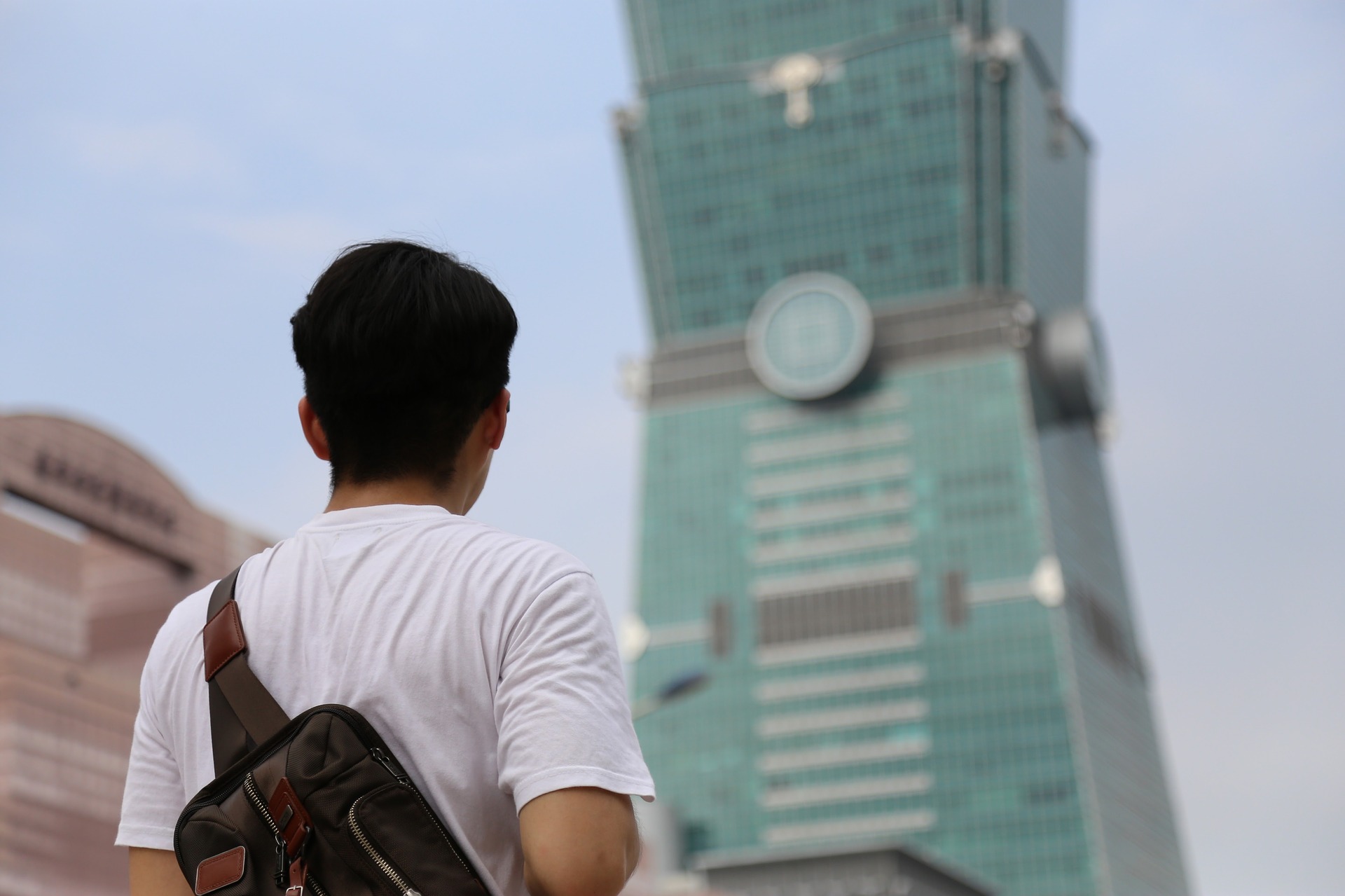Taiwan is fighting Beijing influence, but it won’t close the door to mainland Chinese people

Countries around the world fighting Beijing’s influence have seen upticks in resentment toward Chinese nationals. But Taiwan is doing its best to differentiate between the Chinese government and its people.

Taiwan holds a presidential election on Saturday that, like most of its elections, is defined by the “China question.” President Tsai Ing-wen (蔡英文 Cài Yīngwén) sees the Chinese Communist Party (CCP) as a threat to the nation’s sovereignty and democratic institutions, while her challenger, Kaohsiung mayor Han Kuo-yu (韓国瑜 Hán Guóyú), regularly offers grandiose promises about how embracing China will enrich Taiwan.
Tsai is favored to win reelection in large part due to her tough stance against Beijing, while her party is expected to keep its majority in the legislature. That same legislature, led by the Democratic Progressive Party (DPP), passed a law targeting Chinese infiltration on December 31. The past year has shown that Taiwan people — particularly the young — unequivocally object to Chinese encroachment, whether real or perceived. In many places — from Hong Kong to Australia to the Philippines — similar fears often manifest themselves as negative attitudes toward Chinese nationals. But in Taiwan, only about 100 miles east of China, citizens and government officials alike have made a concerted effort to make sure the nation’s antipathy does not extend to the Chinese people.
Last September, Taiwanese internet celebrity Zhōng Míngxuān 钟明轩 uploaded a video titled “Taiwanese people: Wake up!” which urged viewers not to direct hostility toward the people of China.
“When we think of China, we think of a very large country, with about 1.4 billion people,” he says. “The point is, China and the Chinese Communist Party are totally different. The CCP is only one party within the country.
“A lot of people will often conflate ‘China’ and ‘CCP.’ But in Taiwan, neither the Nationalist Party (Kuomintang, KMT) nor DPP represent Taiwan, no matter which party is currently in power. From now on, if you want to curse the Chinese government, please change the subject from ‘China’ to ‘CCP.'”
Zhong directed the message not only to Taiwanese citizens, but to Tsai Ing-wen.
“We need to let the Chinese people know that Taiwanese people don’t hate the Chinese people,” Zhong said. “What we hate is the CCP.”
Zhong is far from alone. Taiwan’s younger generation, which leans heavily in support of the DPP, is more wary of — and disconnected from — China than its elderly, KMT-leaning voters, many of whom were raised to see China as their homeland. Taiwan’s 2014 Sunflower Student Movement, in which students occupied the legislature and successfully forced a proposed trade agreement with China to be shelved, galvanized many of today’s young voters.
But anti-Chinese sentiment among Sunflower activists “tended to be rare,” said Brian Hioe, co-founder of the Taiwanese magazine New Bloom and an active participant in the movement. “It didn’t loom large enough as an issue during the movement that any dialogue developed around the issue of drawing distinctions between the CCP and the Chinese people.”
Speakers within the legislature often spoke of the student occupation of Tiananmen Square, and there were mainland Chinese participants in the movement who generally felt “welcomed,” Hioe said. Contrast that with what’s happening in Hong Kong, where protesters have largely shut out mainland voices. One Chinese participant in the Sunflower Movement, Cài Bóyì 蔡博艺, ran for student president at Tamkang University. Her candidacy, for some, became an outlet for anti-Chinese sentiment, but she received support from prominent Sunflower activists.
Some Chinese participants returned to China after the movement, Hioe said, but “others sought to stay in Taiwan. Some are still here, over five years later.”
“We need to let the Chinese people know that Taiwanese people don’t hate the Chinese people.”
In September, Taiwan saw several clashes on university campuses between Chinese students and classmates from Hong Kong and Taiwan who posted pro-democracy messages on Lennon Walls.
One Hong Kong student was reportedly assaulted by a Chinese student at Kaohsiung’s I-Shou University after he put supportive post-it notes in the dormitory where they both lived. Days later, Chinese students at three Taipei universities were involved in clashes over Lennon walls; one Hong Kong student was injured at Chinese Culture University after Chinese nationals brawled with onlookers.
The incidents sparked anger in Taiwan. Universities and government officials condemned the behavior of the involved students — Tsai insisted Taiwan “would never allow such incidents or tolerate them” — but was careful not to stoke public anger toward other Chinese students. Tsai said she would not let Taiwan be a “base for authoritarianism,” but added that students were free to have their own opinions.
Some commentators raised alarm over Chinese student spies after the incidents — in 2017, Taiwan convicted a former Chinese student of recruiting spies for Beijing — but the education ministry let the universities themselves discipline the students. One professor urged Taiwanese to understand the anxiety of Chinese students and called for the country to remember the value of student exchanges.
While the number of exchange students from mainland China have decreased since Tsai took office four years ago, Taiwan has seen an increase of students from elsewhere in Asia, part of Tsai’s plan to increase engagement with South and Southeast Asian countries. Many Chinese students in Taiwan are enrolled in shorter, non-degree programs.
“They only let a trickle in,” said Kerim Friedman, an associate professor at National Dong Hwa University in Hualien. This may be a major reason why Taiwan has not joined countries like Australia in panicking over the influence of Chinese students on its campuses. But the decision appears to have more to do with diversifying Taiwan’s foreign student population — along with avoiding coercive attempts by Beijing to get universities to issue pro-China statements — rather than restricting Chinese students. Those Chinese students who do come to Taiwan, Friedman said, are often “completely apolitical or want to learn about Taiwan.”
“My experience with them has been great,” he added.
For what it’s worth, mainland Chinese people have retained a healthy interest in Taiwan. In August, Beijing abruptly canceled a scheme allowing Chinese nationals to travel individually to Taiwan, a move widely seen as an attempt to pressure Tsai economically. It didn’t work: foreign visitors to Taiwan in 2019 reached a new record high.
Taiwan has indicated it will welcome individual tourists back if the Chinese government allows them to come. Tsai tweeted about it:
China’s government is making a mistake by prohibiting individual travelers from coming to #Taiwan. They are depriving Chinese people of their right to experience our free & democratic lifestyle for themselves, which is the most natural way to improve cross-strait communication. pic.twitter.com/TAfhSfEW3K
— 蔡英文 Tsai Ing-wen (@iingwen) August 1, 2019
Taiwan’s transport minister, Lin Chia-lung (林佳龙 Lín Jiālóng), said on Tuesday that he hopes Beijing will lift the ban on travel to Taiwan after Saturday’s election.
Many observers believe Beijing’s true motive was not to cripple travel agencies previously reliant on Chinese tourism — which have been assisted by targeted bailouts since Tsai’s 2016 election — but to limit exposure of Chinese citizens to Taiwan’s democratic elections. Beijing’s moves to limit tourism to Taiwan have likely “done little to change Taiwanese people’s impression of either Chinese people or the Chinese party-state,” said Ian Rowen, a professor at Singapore’s Nanyang Technology University, who has researched Chinese tourism to Taiwan.
“It’s hard not to interpret this as a total failure of PRC policy,” Rowen said. Aside from the tourism industry, he continued, the only losers have been “PRC and Taiwanese citizens who might actually learn something valuable by interacting with each other.”
Taiwan witnesses few acts of aggression toward Chinese tourists, with exceptions generally occurring when they are disruptively nationalistic, Hioe said. For instance, those who crusade for unification may face hostility, or anyone who defaces Lennon Walls. But any Taiwanese backlash against Chinese nationals is more actively expressed in “passive anxiety regarding Chinese stemming from identity concerns, rather than active ethno-nationalist aggression,” Hioe said.
Supporters of Taiwan independence, who mostly back Tsai and the DPP, have always raised awareness of rights abuses and oppressed populations within China, including Tibetans and Uyghur Muslims. DPP officials met the Dalai Lama in July and have expressed their desire for him to visit Taiwan. Su Beng, the famed independence activist who died last year at 100, frequently spoke in support of movements within China. While Taiwan has no formal refugee legislation, it has received dissidents and asylum seekers from other countries, including China.
In December, Zhong Mingxian, the internet celebrity, met Tsai Ing-wen. Toward the end of their conversation, which has accumulated more than 1.9 million views on YouTube, Zhong brought up Tsai’s frequent warnings that “China” is attempting to interfere in Taiwan’s election. “When you say ‘China’ and not ‘the Chinese government,’ Chinese people will think you’re criticizing them,” Zhong said. “But they don’t have a say in their government.”
“You use China as your subject,” Zhong said. “Can we change that subject to CCP?”
Tsai quickly agreed. “I’ll say ‘the Chinese government,’” she said. “I won’t say ‘China.’”





